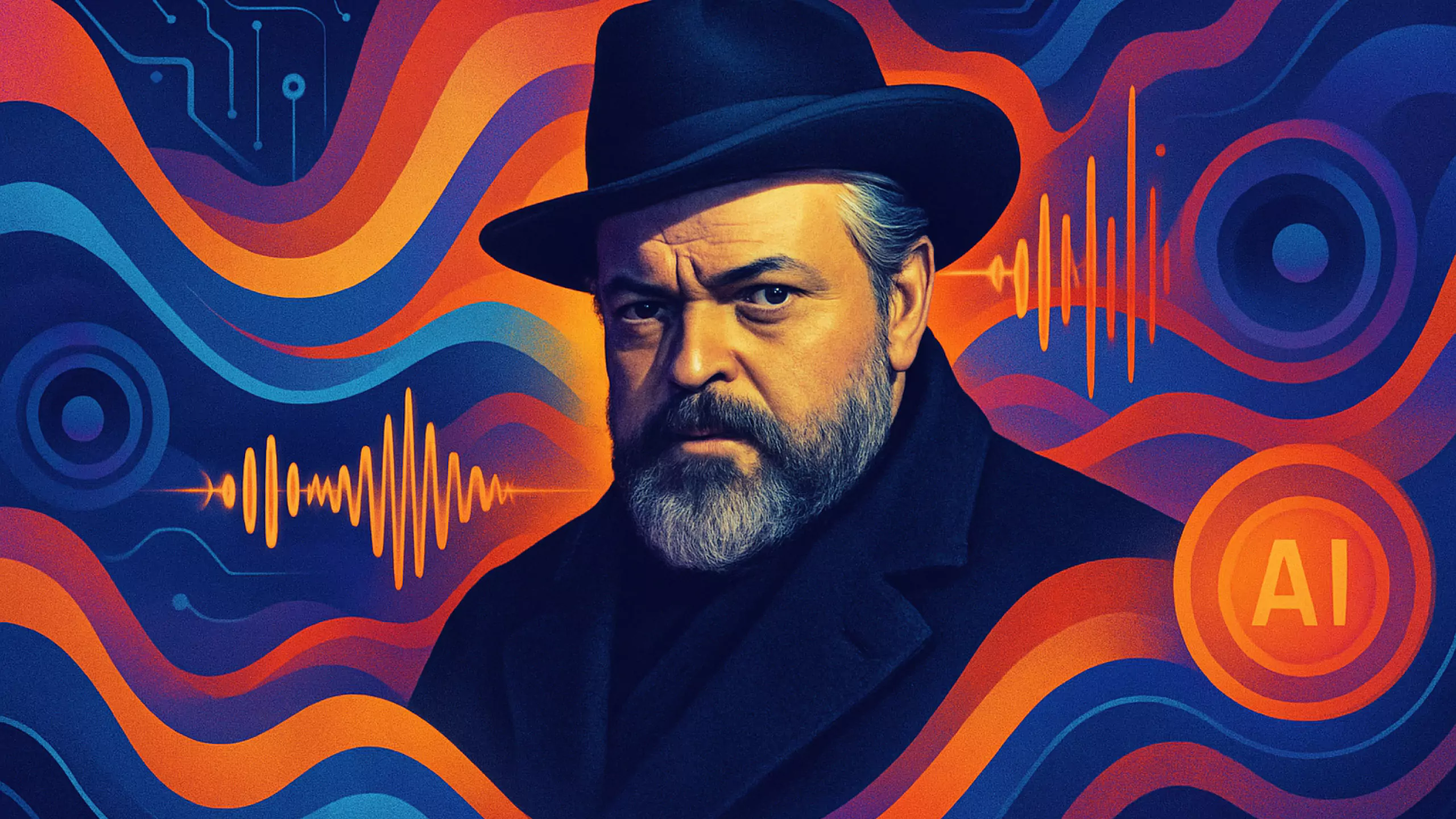When we began exploring the idea of giving voice to place—of weaving narrative into the fabric of physical environments—we asked ourselves what it means to trust a voice. Not just for what it says, but for how it says it. How it makes us feel. How it compels us to listen.
The Storyrabbit App
For some time, we have been working alongside Treefort Media to bring to life the Storyrabbit app as a new form of discovering the world around you through engaging narrative storytelling. We recently introduced an exciting new host in the Storyrabbit app. The legendary Orson Welles. This development aims to enhance location-based storytelling by offering users immersive audio narratives delivered in Welles’ iconic voice.
Extending Legacy with Care
We collaborated closely with Treefort Media who worked in full partnership with the Welles estate. They understood what we were trying to achieve—not mimicry for nostalgia’s sake, but something far more ambitious: an extension of Welles’ relentless creativity into a new medium he would’ve surely embraced.
Orson Welles was a futurist. He pushed the boundaries of storytelling—from radio to cinema to theatre—constantly asking, “What’s next?” In our view, putting his voice into the ears of curious explorers in real-world spaces is an evolution he would’ve relished. It turns the world into a stage, with his unmistakable tone guiding us through history, art, culture, and context.
This isn’t a novelty. It’s a continuation.

Ethics and Empathy in Voice Recreation
The ethical questions are valid, and we welcome them. Every voice brought back carries with it a responsibility. Our approach is rooted in empathy, consent, and curation. We only work with fully authorized voice estates. The AI model we used was trained on licensed material and developed under close scrutiny. Importantly, every story Welles “tells” is one coming from careful human crafting through directorial instruction, and fueled by data and information carefully curated by human storytellers—there’s no generative improvisation, no risk of putting unintended words in a legendary mouth.
To us, this is not about blurring the line between real and synthetic. It’s about honoring the real—by using technology to make it newly accessible, newly resonant, and newly alive.
Amplifying Creative Voices, Not Replacing Them
At Younite, we’re not in the business of replacing people with AI. We’re in the business of supercharging productivity and efficiency with AI. And in the world of creativity, extending creative possibility. Our goal is always to amplify the voice of the creator, the curator, the narrator, the historian.
With the Storyrabbit app, we’re pioneering a new form of storytelling—bite-sized, deeply contextual, and emotionally resonant. Orson Welles is one of many voices in the experience. Alongside him are actors, historians, artists, and creatives from around the world. The technology we use ensures those voices—whether human or AI-assisted—are delivered with clarity, relevance, and emotional connection.
AI, when used thoughtfully, doesn’t flatten creativity. It scaffolds it.
Building the Future of Branded Storytelling
What excites me most isn’t just where Welles’ voice lives now, but where it could go. The Storyrabbit app is our first proof of concept. But imagine that voice—trusted, evocative, magnetic—guiding you through a museum exhibition, an educational VR experience, a city walking tour, or even a personalized learning journey at home.
We’re working toward a future where voices like Welles’—or Maya Angelou’s, or Carl Sagan’s, or James Baldwin’s—can live again as branded narrative conduits. Where they can help uncover information, illuminate history, or teach concepts through emotional resonance and human familiarity.
A New Chapter in Storytelling
The opportunity to bring Welles back wasn’t just a technological challenge. It was a creative conviction. That the voices of the past don’t belong behind glass. That legacy isn’t static. That storytelling can—and should—evolve to meet people where they are: out in the world, headphones on, curiosity open.
We’re proud of what we’ve created. And even prouder of the questions it provokes. Because that, too, is storytelling.
And Welles? We think he’d approve.
About the author
David Papworth
Dave is the Creative Cultivator (CCO) and Product Leader for Younite. His career has taken him through multimedia, development, design, innovation, and ultimately founding Younite. David's focus is on building teams that can tackle any challenge, look beyond their boundaries, and grow the collaborative relationships Younite desires with our clients.



